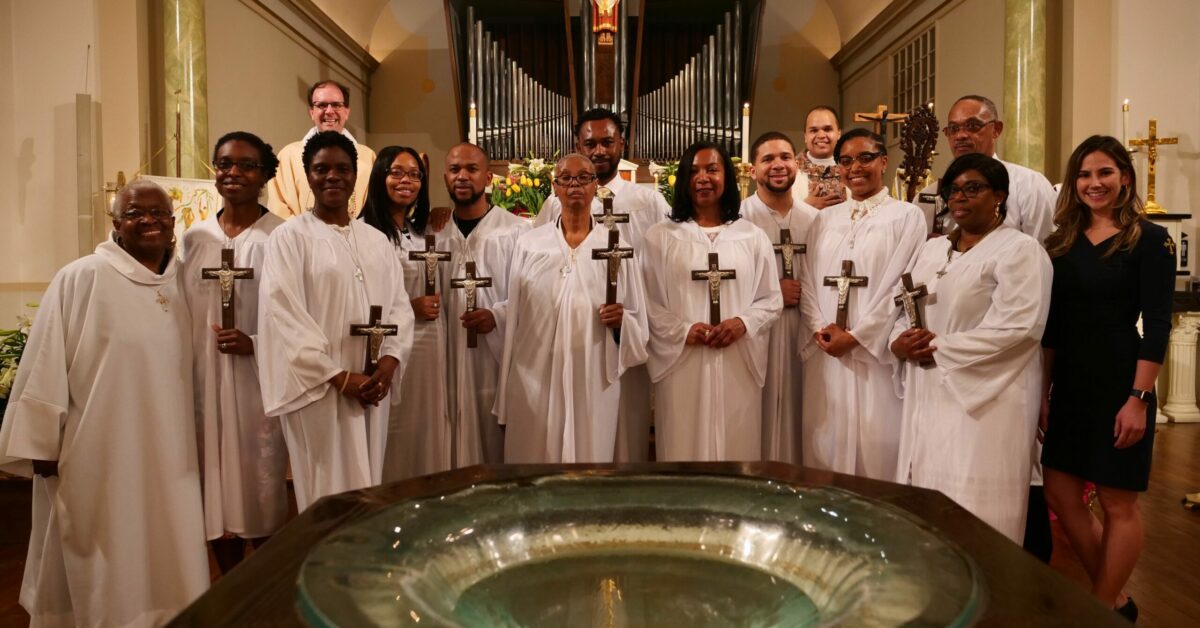The Adult Catechumenate and Christian Formation: Forming Pastoral and Diaconal Candidates
As we proclaim Christ is risen and transition into the joy of the paschal season, so our blog transitions out of our series on the Period of Mystagogy into a five week series of reflection on teaching the catechumenate. I (Kent) have just started a 7 week half-semester course on the adult catechumenate and Christian formation at Concordia Seminary, St. Louis. It is the first time that I have taught this course, itself a fruit of Dr. Schuler’s and my work on the catechumenate over the last six years. In this series I intend to reflect on the questions, observations, and issues posed, addressed, and critiqued in our class of thirteen students. They come from a variety of programs: male pastoral and female diaconal candidates (the LCMS only has the office of Deaconess, not Deacon and only males are eligible in the church body for the pastoral office), post-internship and pre-internship students, M.Div. degree candidates and MA and STM degree candidates, and even one non-degree visiting student from Argentina. It is the most diverse class I have taught, at least with relation to the students’ program, in some time. Such diversity is refreshing, and it reflects the diversity of the catechumenate itself.
The timing of the course in relationship to the Triduum couldn’t have been more ideal. We started the course the Fifth Week in Lent. This allowed me to arrange a visit to the Holy Saturday preparatory rites and the Easter Vigil at St. Peter Roman Catholic Church in St. Charles, MO. The RCIA director for the St. Louis archdiocese wonderfully facilitated arranging this visit to the most hospitable St. Peter. (No LCMS congregations in the area have an active adult catechumenate, at least to my knowledge. Thus the need for this course!) Some of the students have only been in a Roman Catholic worship service a handful or less of times. And for many it was their first experience of catechumenal rites and of the Easter Vigil.
Two comments that students made in response to what they experienced reveal the formative power of catechumenal experiences enacted with intentionality, integrity, and relational investment. The first revolved around the preparatory rites of anointing, ephphaatha, and the return of the Creed. The student observed the pastoral care and attention that the priest gave to each elect, especially in the laying on of hands (lengthy and with attention on the catechumen) and the attention given to applying the oil of catechumens to each one. In addition, the priest, following the rite, delivered a brief mystagogy on the meaning of the rites that was pastorally sensitive and attuned to providing the elect with a full experience of what had just happened. The student said that he hoped he could emulate this priest’s pastoral manner and behavior. The second comment resulted from the experience of the initiatory rites at the Easter Vigil. The deaconess student commented that she feels like baptisms in Lutheran churches are often treated in a perfunctory and insignificant way. She was overwhelmed by the time given to the baptisms of each candidate and the congregation’s investment in the experience. It was clearly a matter of high importance for all, what was taking place at the font. She though it beautiful and worthy of the dignity and import of the baptismal moment. And she desired for the baptismal practice of Lutherans, for whom like with our Roman Catholic brothers and sisters, it is a life-changing event, that we would model this kind of joy, reverence, and ritual integrity. I can’t find any better reflections of how the catechumenate allows us to arrive, in the words of the Lenten proper preface, “at the paschal feast with sincerity and truth.”
